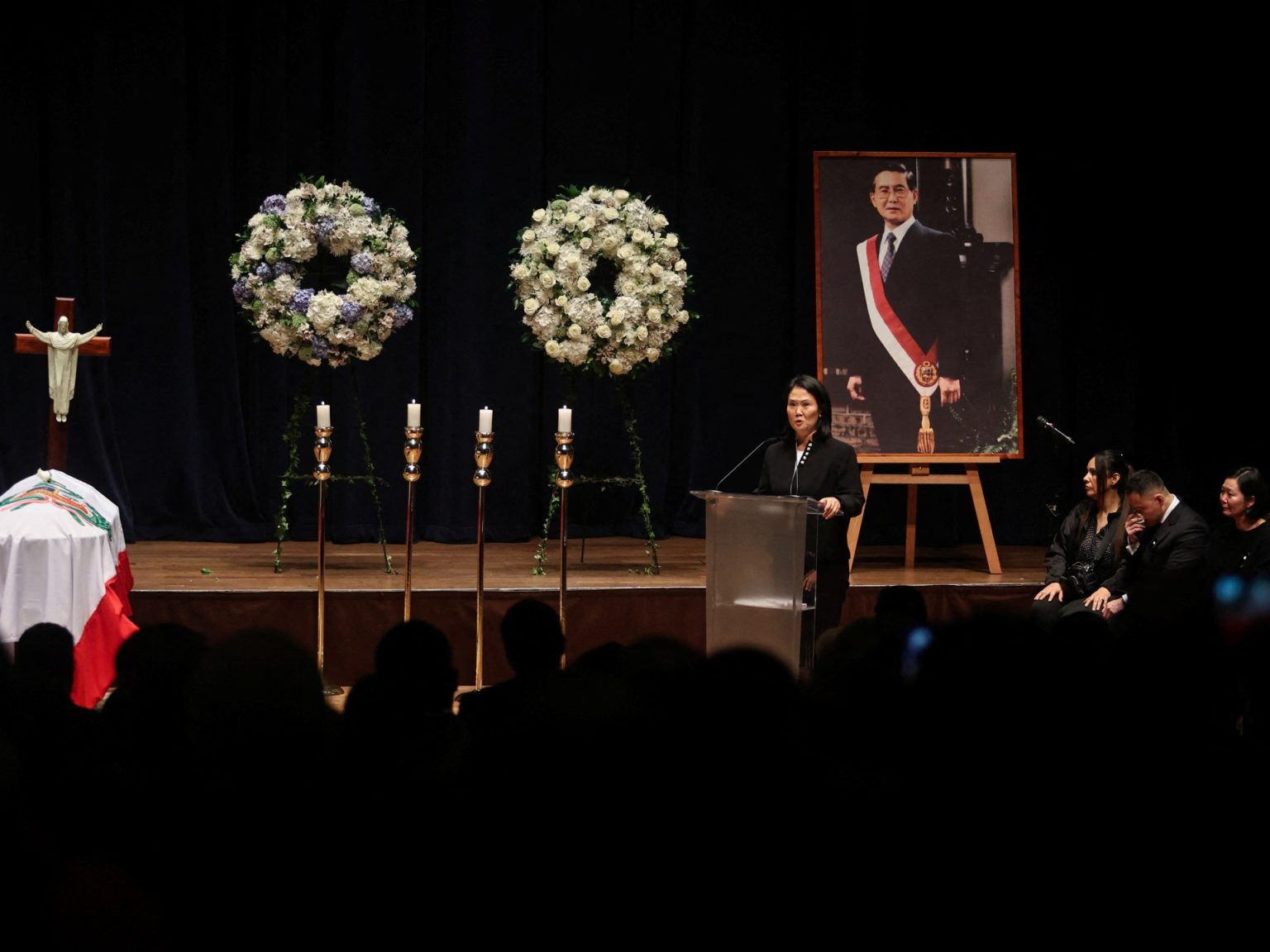Alberto Fujimori, the former President of Peru, was honored in a state funeral after passing away. Despite his controversial legacy, Fujimori was praised for stabilizing the economy and dismantling the Maoist rebel group Shining Path during his rule in the 1990s. However, he was also seen as corrupt and authoritarian, with his administration marred by human rights abuses and government-led violence. Many Peruvians had mixed feelings about his funeral, with some expressing admiration for his actions against terrorism while others condemned his actions and the recognition he received.
Fujimori was convicted in 2009 for his involvement in the murder of 25 people by government death squads during his presidency. Despite this, he was ultimately released from prison due to his age, sparking controversy and defying international human rights rulings. His government also carried out a self-coup in 1992, suspending the legislature and judiciary, and oversaw a campaign of forced sterilization targeting poor and Indigenous women. The violence during his tenure left lasting scars on Peru, with a government Truth Commission estimating nearly 70,000 deaths during the conflict with the Shining Path.
The rise and fall of Fujimori were marked by dramatic events, including his unlikely victory in the 1990 presidential election against Mario Vargas Llosa. However, his presidency was tarnished by corruption scandals and the actions of government death squads. He fled Peru after a corruption scandal involving his spy chief, resigning from Japan via fax in 2000. Despite his downfall, Fujimori was remembered by some for his actions against terrorism and for bringing stability to the country, leading to a complex legacy that continues to divide public opinion.
The funeral drew a mix of supporters and detractors, with some Peruvians expressing gratitude for Fujimori’s role in ending terrorism in the country. However, others, such as Gisela Ortiz, whose sibling was killed during Fujimori’s presidency, criticized the state for honoring someone convicted of serious crimes. The conflicting views on Fujimori’s legacy reflect the ongoing debate in Peru over his presidency and the impact of his actions on the country’s democracy and human rights record.
Fujimori’s funeral was held at the National Theatre in Lima, where his daughter Keiko Fujimori spoke in front of a large photo of her father. The audience chanted his nickname, “Chino,” a term of endearment reflecting his Japanese heritage. Despite the mixed reactions to his legacy, the funeral was a somber occasion that highlighted the complexities of Fujimori’s rule and the enduring impact of his policies on Peru. As the country continues to grapple with the legacy of his presidency, Fujimori’s funeral serves as a reminder of the divisive figure he was and the ongoing debate over his place in Peru’s history.


